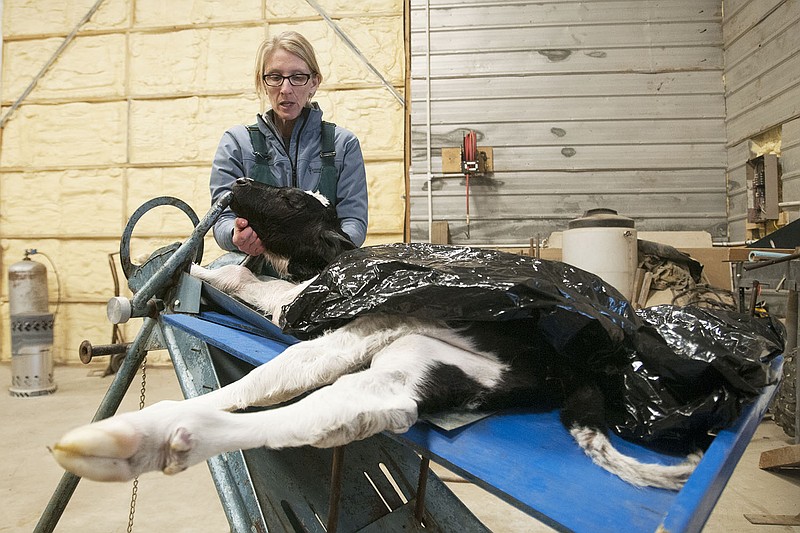The University of Missouri Extension Center hosted its first ever beef reproduction field day Saturday.
Heather Smith, livestock specialist with Callaway County's extension office, met with livestock producers in the county and asked what they wanted to explore more within their field. She said there was a special interest in fetal aging and sexing. From there, she went to veterinarians and specialists, asking to participate.
"My mind ran with it," Smith said.
Smith said she hoped livestock producers would be able to develop the new techniques they've learned at the field day on their own farms.
"It's important to their operation and their bottom line," she said.
Participating livestock producers were able to dive into four different topics all relating to beef reproduction: fetal aging and sexing, artificial insemination, calving assistance and estrus synchronization.
While many people feel artificial insemination is a difficult task, Dan Busch, a specialist with Select Sires, said it's more manageable than people's preconceived notions.
Busch had the reproductive tracts of cows available for livestock producers to practice artificial insemination and was available for questions.
He told participants that sperm counts depend on the individual bull and some can produce more than 300 counts at once.
Busch added there isn't much of a quality difference in fresh and frozen semen, but frozen sperm is transportable and is more easily collected year round.
Dr. Dawna Voelkl, veterinarian and assistant professor at the university's veterinary school, led the session on calving assistance.
"I want to give them criteria for when to intervene (with calving) and when they need a vet," Voelkl said.

